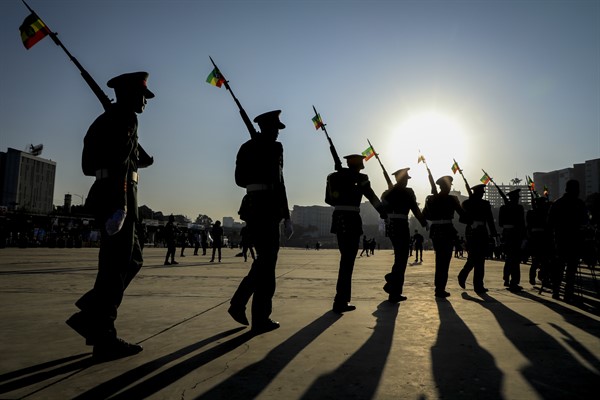As rebel forces of the Tigray People’s Liberation Front and the Oromo Liberation Army close in on Ethiopia’s capital, Addis Ababa, domestic factions and international mediators are quickly revising their calculations regarding how the war may end and the kind of political order that could emerge in its aftermath.
Earlier this month, almost a year since the conflict began, the TPLF and the OLA announced they were forming an alliance with seven other opposition groups, with the goal of ousting Prime Minister Abiy Ahmed—whether by force or through a negotiated settlement—and installing a transitional government. In light of their recent successes on the battlefield, members of this new coalition may have little inclination to negotiate with the current government.
At the same time, Abiy has declared a national state of emergency under which anyone suspected of links with rebel forces may be detained without a court warrant and any citizen who has reached the age of military service may be drafted to fight. It did not take long for troubling reports to emerge of Ethiopian forces going door-to-door in Addis Ababa to round up ethnic Tigrayans.

